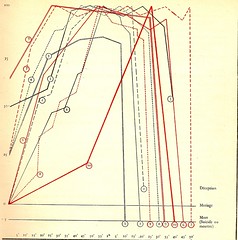Furthering my research on Georges Bataille‘s general economy[1], helped by Valter‘s kind comment, it occured to me that the Marxian notion of surplus product is very similar to Bataille’s excess. The two notions and can only lead to wasteful spending such as luxury or war.
Thus, we read on page 21 of volume 1 of The Accursed Share:
- “The living organism, in a situation determined by the play of energy on the surface of the globe, ordinarily receives more energy than is necessary for maintaining life; the excess energy (wealth) can be used for the growth of a system (e.g., an organism); if the system can no longer grow, or if the excess cannot be completely absorbed in its growth, it must necessarily be lost without profit; it must be spent, willingly or not, gloriously or catastrophically” (v. 1 p. 21).
If the “excess energy” or “surplus product” is spent “gloriously”, we call it luxury, if spent “catastrophically”, it is war. Notions that connect are pure war by French philosopher Paul Virilio and the military-industrial complex.
While researching The Accursed Share, I also happened on the blog with the same name[3] by Nick Srnicek and Kieran Aarons, which features two astounding photos, a shot of Cairo with the Pyramids as backdrop [4] by unknown (credits anyone?) and a photo[5] by German-born photographer Michael Wolf belonging to his “densities” project.










